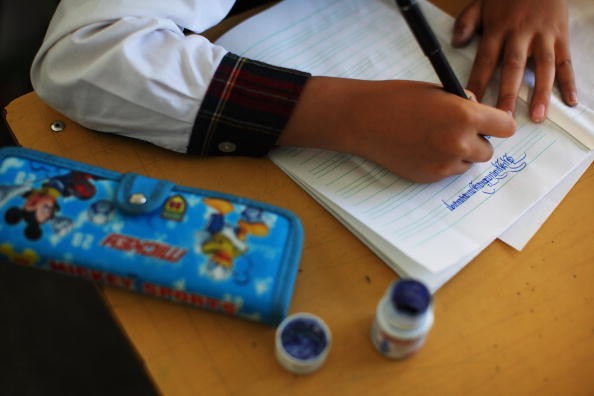“Jian Zi Ru Mian,” a remake of the popular BBC show “Letters Live,” enjoys the approval of TV viewers as it got more than 200 million views when it started to air in December. The show received the thumbs up from both viewers and critics who gave the show a 9.3 rating on Douban.com, a popular review site for films and books.
Caixin noted that the 9.3 rating was high for a reality show. “Jian Zi Ru Mian” has well-known actors reading out letters from a podium. Some of the letters have shocking content.
Letter from a Future Murderer
One such letter came from Gu Cheng, a poet, who wrote in 1979 to his future bride Xie Yie while aboard a train to Beijing from Shanghai, “We met on the train. Will you mother think I am a bad man?”
She answered that since trains are full of people, some of them are good and some bad. “But you are like none of them. You are a special one!” she replied. Gu Cheng, after years of the couple living in exile in New Zealand, axed Xie Yie to her death in their home.
The letters, private correspondences between celebrities and ordinary people, often went viral on Chinese social media such as the 2007 letter by Tsai Chin, a Taiwanese pop singer, after her former husband, film director Edward Yang, died. The couple were married for decades, but in 1995, word spread around that the couple did not have sex while living together. The hint of a sexless marriage was further triggered by Tsai Chin’s words: “We were young and fought for the future together. As a wife, I got more loneliness from him than happiness, but as a fan, I appreciated his thought-provoking films … Everything from our past shall remain my own secret and live with me.”
Guan Wenzheng, director of “Jian Zi Ru Mian,” said his team went through a lot of museums and private collections in search of letters about love, bravery, missing home or to capture the spirit of the time, some dating as far back as the Ming Dynasty.
Fresh Breeze of Air
Global Times pointed out that the show is attracting viewers because “it is a fresh breeze of air for China’s variety show biz.” Chinese audience are tired of many variety programs that feature stars who play silly games or take part in random contests.



























